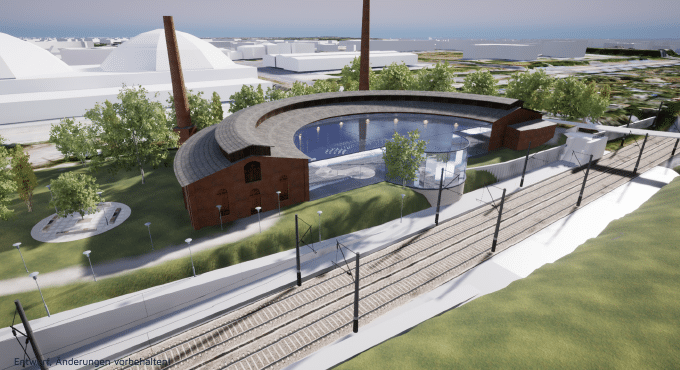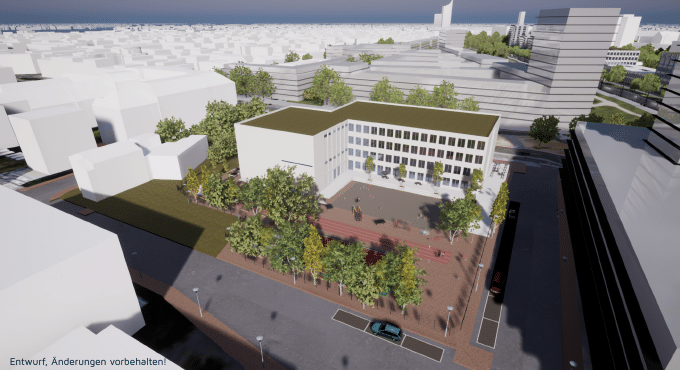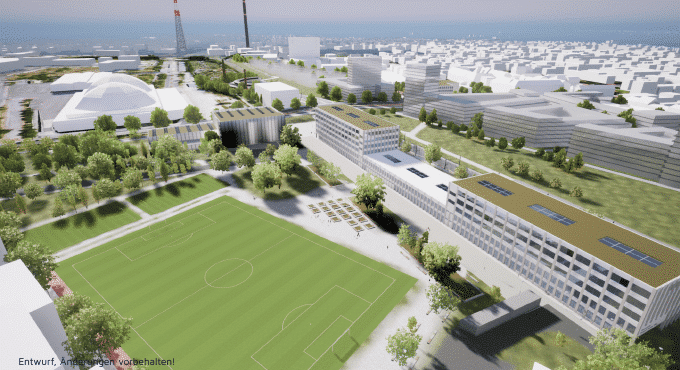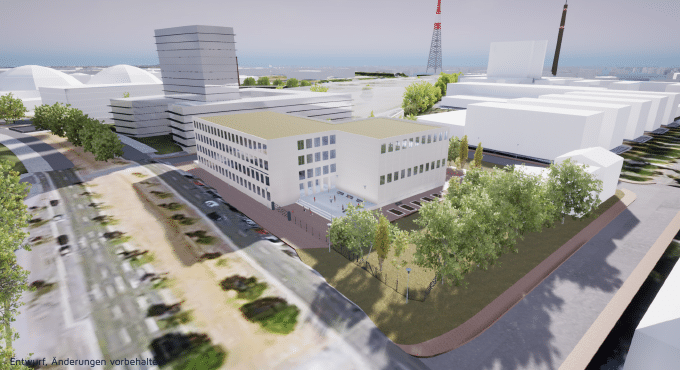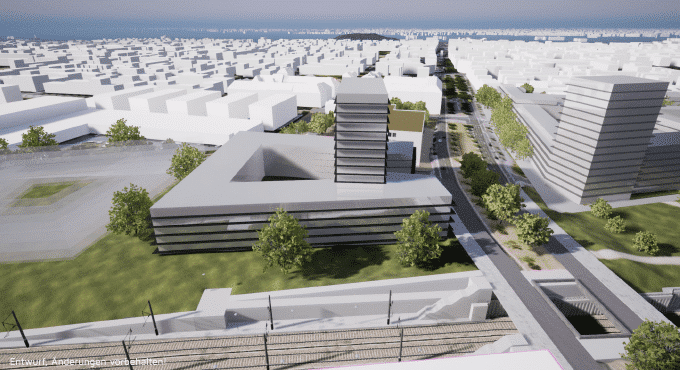Planning objectives
The urban space Bayerischer Bahnhof Leipzig
Clear planning objectives for the Bayerischer Bahnhof urban space
The development of the Bayerischer Bahnhof urban space is picking up speed again. On 6 February 2019, the city and the project developer presented two additional agreements that were ready to be signed and which concretize the urban development contract concluded by both parties in November 2018.
Above all, it sets out concrete planning objectives, the further course of the development process and the involvement and participation of the public. The city council then decided on the contracts in March.
Lord Mayor Burkhard Jung comments:
Building Mayor Dorothee Dubrau:
Patrik Fahrenkamp, Chairman of the Management Board of Leipziger Stadtbau AG:
The Bayerischer Bahnhof urban space is designed as a high-quality, modern quarter. Around 1,600 apartments for around 2,700 residents are planned. 330 daycare places in the area of the former “Gurken-Schuhmann” canning factory and in the new residential quarter on Lößniger Strasse and a comprehensive school for over 2,000 pupils are to be built. In addition, areas of approx. 150,000 m² are reserved for office and commercial use (primarily south of Kurt-Eisner-Straße/Semmelweisstraße).
The new residential quarter on Lößniger Strasse is being developed as a car-reduced quarter . A new public district park will be created along the railroad line, which will radiate into the neighboring city districts and offer many people opportunities for recreation and exercise.
Here you will find further information on the subject of sustainability.
A north-south footpath and cycle path will be created, as well as east-west crossings for pedestrians and cyclists. The connection to the extended Steinstraße bridge south of Kurt-Eisner-Straße/Semmelweisstraße is made possible. The developer and the City of Leipzig attach great importance to the implementation of comprehensive urban ecological requirements and qualities. A separate development plan is required for the new residential quarter.
You can find more details on the mobility concept here.
Implementation and realization in construction phases has already begun in the first sub-areas.
Also interesting: The history of the Bayerischer Bahnhof.
The first urban development contract between the developer and the City of Leipzig was signed on November 20, 2018. In this contract, the rules for cooperation were formulated and the results of the previous agreements – based on the competition results from 2011 – were secured.
In the meantime, intensive work has continued on the concretization of this contract between the city and the developer through two additional agreements.


